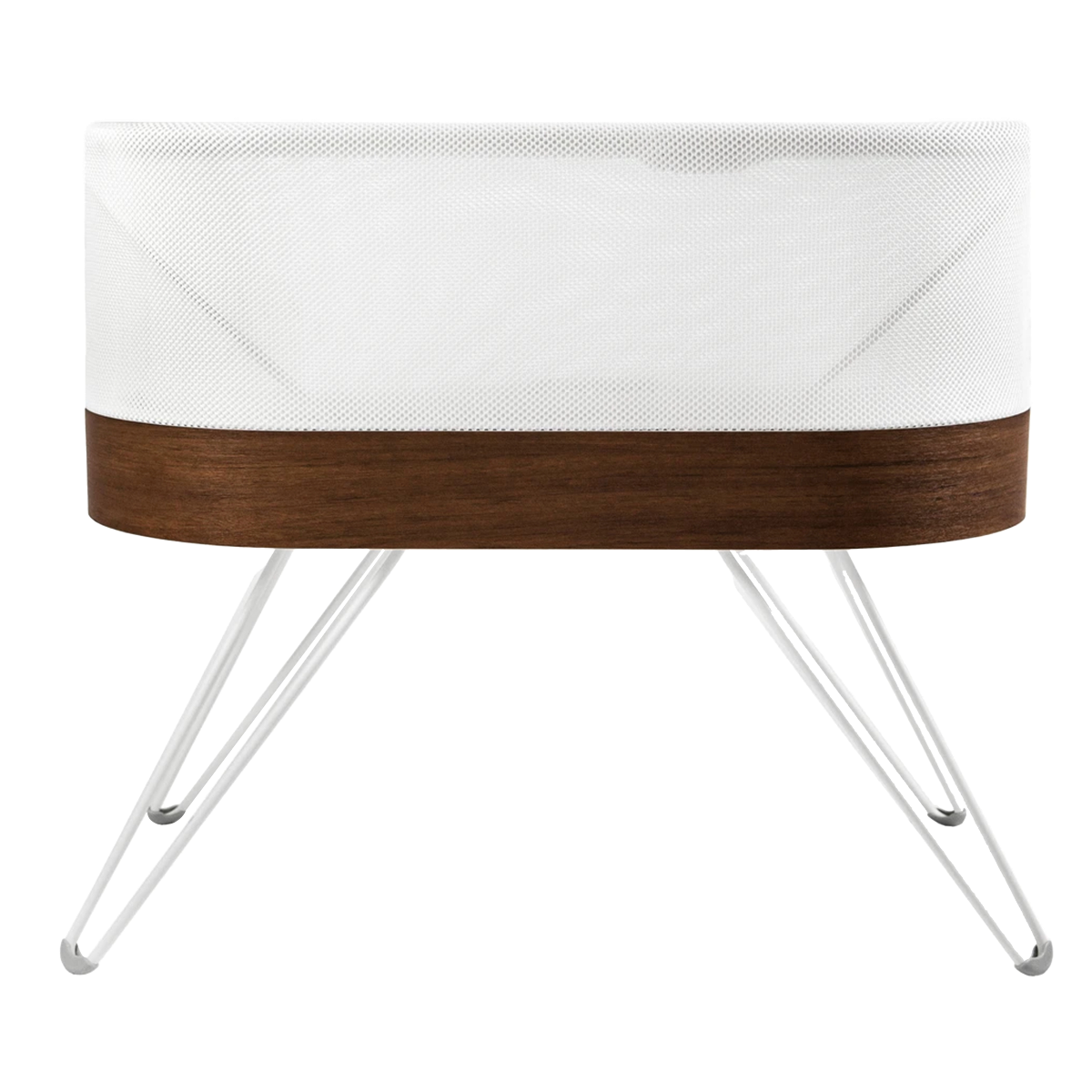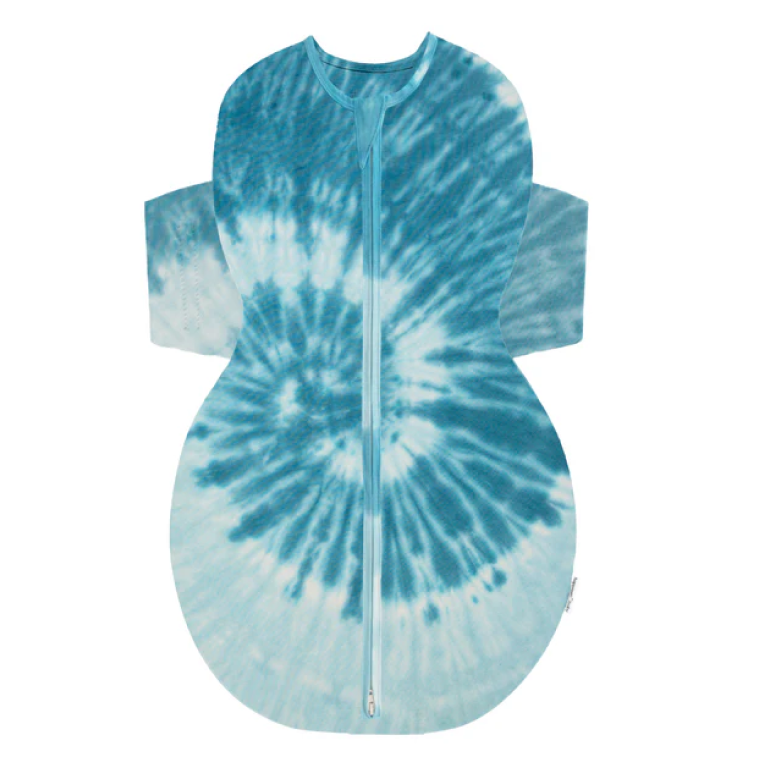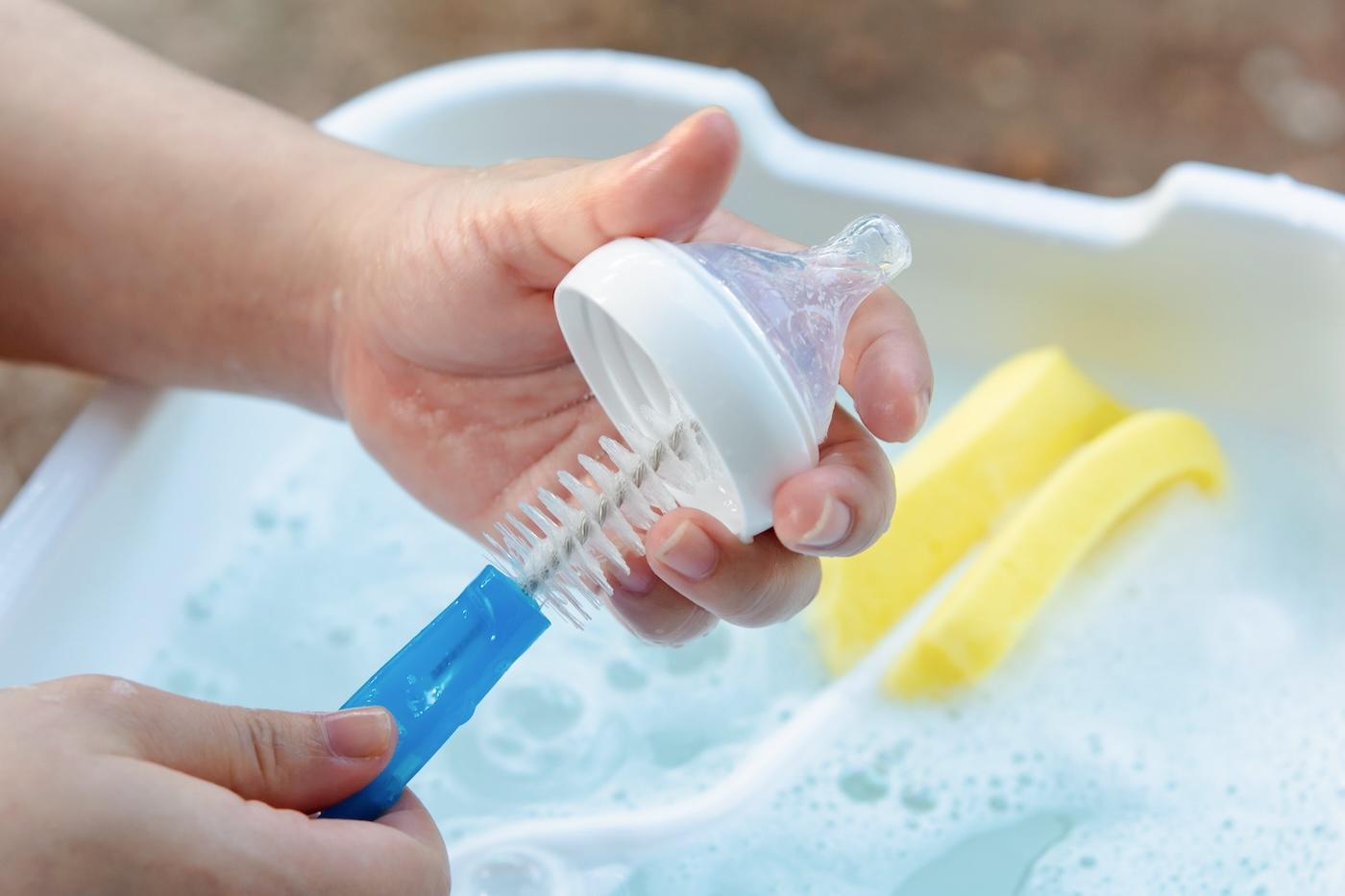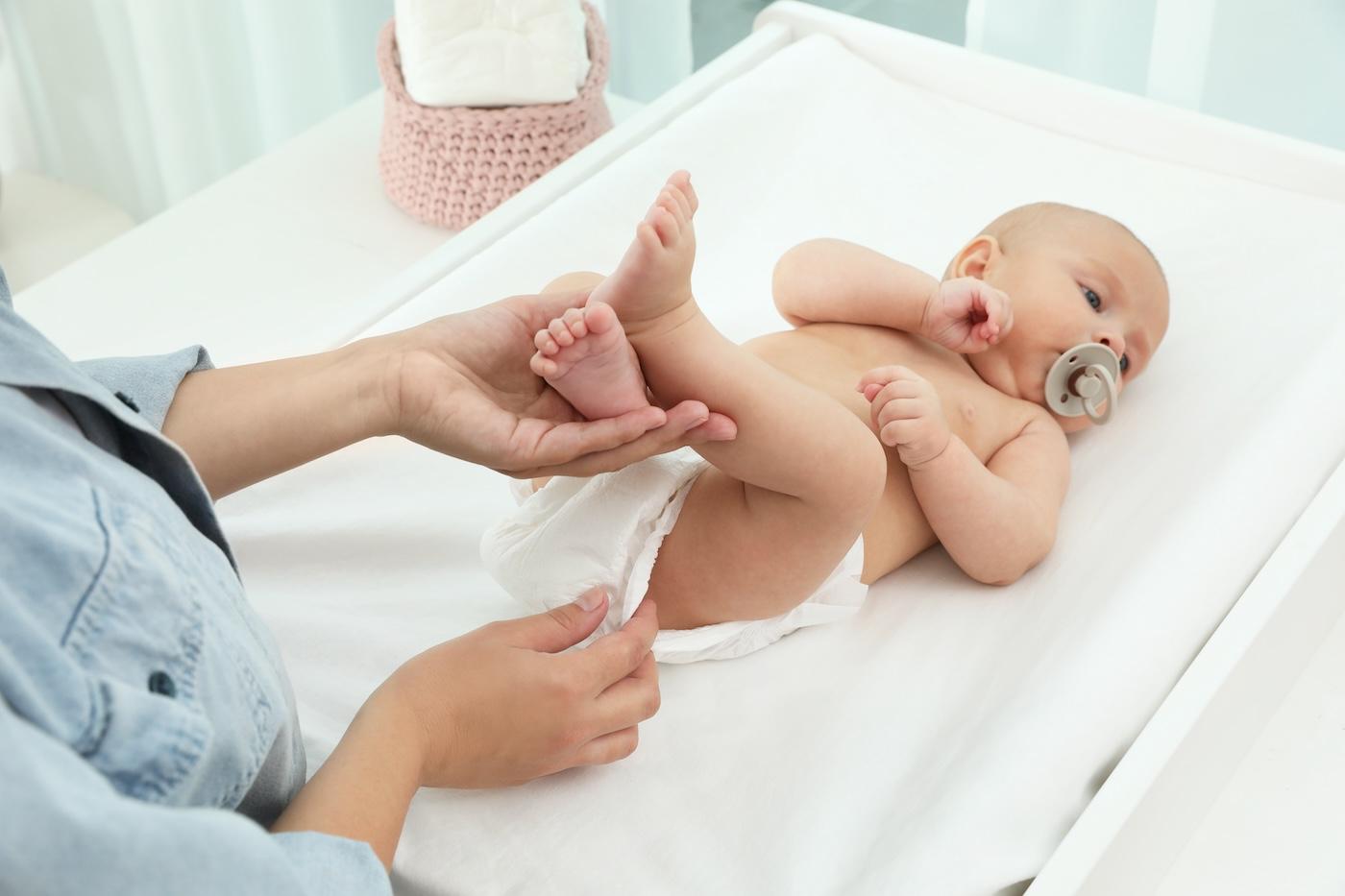BABY
9-Month-Old Baby Milestones
Yay! Your baby has now spent as much time developing outside of you as they did inside.

Written by
Dr. Harvey Karp
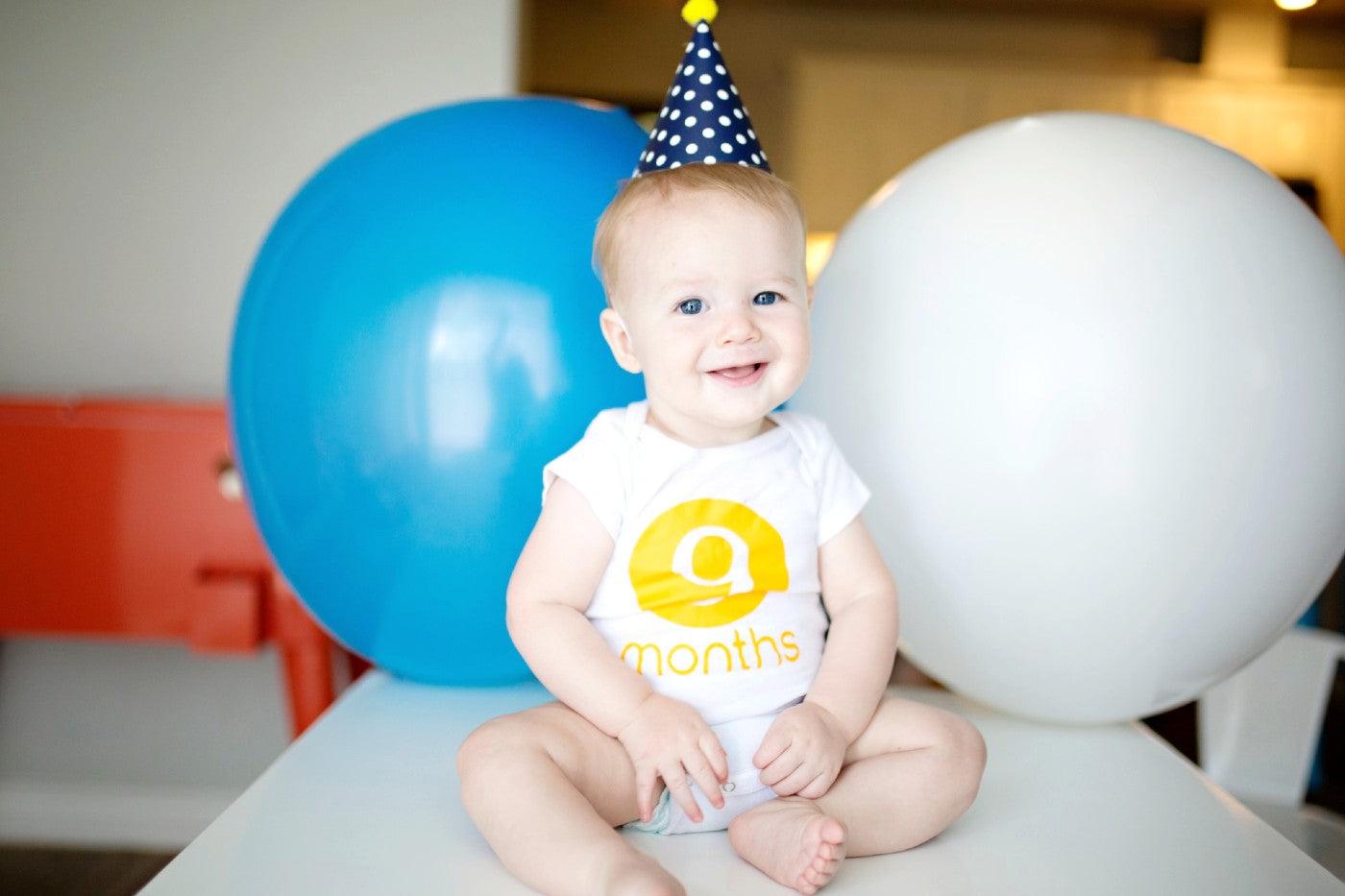
Yay! Nine months! Your baby has now spent as much time developing outside of you as they did inside. And their development is getting more fun and interesting (and exhausting to manage) every single day. From growing into the next size of clothes to saying words to bouncing to music, your lovebug sure has come a long way.
You’ve also come a long way in these past nine months! Please take it easy on yourself. You’re learning and growing, too. Whether you’re back to work, staying home, or a combo of the two, you’ve been juggling all these challenges for almost an entire year. (Bravo!)
Your 9-Month-Old Baby’s Development
What’s in a word?
From the moment your peanut was born (and even before!) they loved listening to you. Over the first 6 months, babies are fascinated when we speak, sing, or just make silly noises! And while your little one still finds you fascinating to listen to (especially if you sing or make some silly noises), research shows that babies at this age also love listening to…other babies. One study found that babies listened to infant sounds 40% longer than adult sounds. Why? Because 6- to 9-month-olds are delighted by high-pitched and emphatic sounds, which is pretty much the way growing babies chatter! So, maybe it’s time to schedule a baby playdate?
Speaking of chatter…those early grunts can be a bit confusing. “What are you trying to say, Sweetheart? Do you want milk? Grapes? Go outside?” But, you will definitely understand these “words” soon…and sooner than anyone else. So, prepare to be your baby’s personal translator when your baby says something like “ba-ba” when they see a ball.
This is also the time that your little one will begin the amazingly powerful skill of pointing! Pointing is one of your baby’s very first “words” (even if it’s not verbally uttered)—and actually, pointing is three words/phrases in one: “Wow, look at that!” “Hey, give me that!” “Yes, I see what you are pointing at!” Pretty cool! It’s like the Swiss army knife of gestures.
Why You Should Sing to Your 9-Month-Old Baby
Even if your 9-month-old doesn’t have a clue about spiders, infants love hearing "The Itsy Bitsy Spider" over and over! It’s fun…and it gives practice in learning rhythms, phrasing, and the basic building blocks of figuring things out and understanding relationships.
I’ve written before about cause and effect. That is an incredible pattern recognition ability that your child is already practicing. Learning music rhythms is another type of pattern recognition. Noticing that, “Hmmm, when I babble my mom comes slowly, but when I scream, she comes fast” is at the very foundation of human art and science…and pretty much everything that we would call intelligence.
Last point, when you sing “Itsy Bitsy Spider” (or “Wheels on the Bus” or whatever tune your bub loves) do the little finger movements, too (of the spider climbing up and falling down). Pretty soon your little monkey will love joining together movement and music. It makes kids feel happy, smart, and like full members of the team when they can do what everyone else can do!
Your 9-Month-Old's Physical Development
Your baby is on the move—which probably means you constantly are, too. While you keep an eye on them and have baby-proofed your home to block off any hazards, it can also help to have a few safe places to contain your baby while you tend to something else. A roomy play yard or sensory-stimulating activity gym can keep your baby happily occupied when you need a breather from chasing them around.
Feeding Your 9-Month-Old Baby
All that energy they are burning calls for a lot of fuel, too. Although breastmilk or formula still makes up the greatest volume of their food consumption, your baby should get a good variety of solid foods these days, too: Aim for about ¼ to ½ cup of each of the food groups. And while snacking is part of life for most of us, try to avoid the habit of “grazing” or snacking throughout the day. This can take away from their appetite at designated mealtimes.
When it comes to hydrating after a big play session, you can offer your baby some water from a sippy cup. You’ll want to transition from a bottle to a sippy cup full-time in a few months, so this is a good way to help them warm up to it. Steer clear of juice or other beverages—and remember that cow’s milk should also be off the menu until after their first birthday.
Your 9-Month-Old Baby’s Health
The 9-Month Checkup
In celebration of your baby turning 9 months old, it’s time to check back in with your pediatrician for a well-child appointment. Without any regularly scheduled immunizations this month, the focus will be completely on your baby’s growth and development.
- Much of the information the doctor has to go on is self-reported, meaning you need to be truthful during the questionnaire or assessment of your child’s development. There’s a big range of what’s normal but giving an honest picture of your baby’s development can help the doctor identify any concerns.
- Now that your baby is chowing down on a variety of foods, prepare to ask any questions about mild reactions to certain foods or new problems with constipation.
- It can help to ask your doctor what to expect from the coming months and how you can help support your baby’s development—whether with new food, new activities, new books, or anything else.
9-Month-Old Baby Walking
If you’re eagerly anticipating your baby’s first steps...you likely have a little longer to wait. While some babies walk as early as 8 months, others take until 18 months (and most are somewhere in between). You’ll now your baby is getting ready for those first steps when they can pull themselves up, cruise along furniture, and stand independently for five to 10 seconds. Once babies start to stand, walking isn’t usually far behind!
What to do if my 9-month-old baby is not crawling?
If your 9-month-old baby isn’t crawling yet, don’t stress! There’s a wide range of when kiddos first crawl. Some won’t crawl until closer to 11 months, and some will bypass this milestone altogether in favor of other ways of getting around (scooting, crab-crawling...or even going straight for those first steps!). To gently encourage your baby’s efforts, engage them in seated play, put eye-catching objects in front of them out of reach, and get down on the ground with them to cheer them on!
< Your 8-Month-Old Baby | Your 10-Month-Old Baby >
Disclaimer: The information on our site is NOT medical advice for any specific person or condition. It is only meant as general information. If you have any medical questions and concerns about your child or yourself, please contact your health provider.
SHARE THIS ARTICLE
MOST LOVED
Sleepytime Sidekicks






